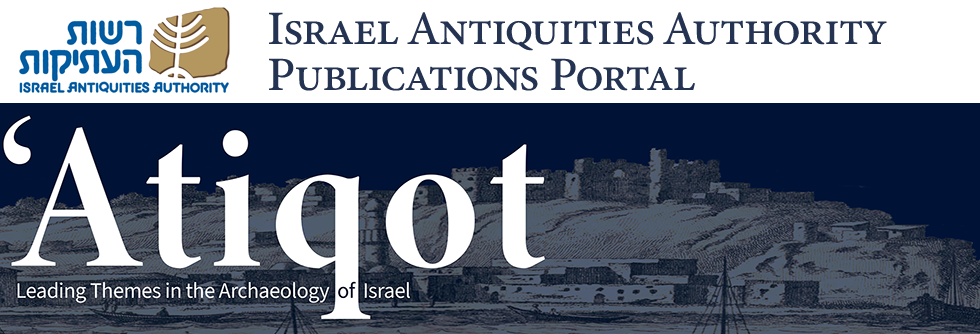Abstract
From the latter half of the first century BCE, an increased observance of Jewish purity laws is evidenced in Judea, focusing on Jerusalem and the Temple. This is further attested by the flourishing chalk-vessel industry, producing vessels for storage and table use, which according to Halakha did not contract impurity. This article is the final report of the chalk-quarry and vessel-production cave complex uncovered on the eastern slope of Mount Scopus, dated by pottery and coins to the first century CE, including a reconstruction of the technology for producing chalk vessels and quantification of vessel types. A few pottery vessels dating to the period between the revolts (70–132 CE) may indicate that chalk vessels continued to be produced in the cave after the First Jewish Revolt. Also included in this report are adjacent quarries, a winepress, water installations and tombs.
Keywords
Jewish, Halakha, purity, chalk vessel industry, workshop, quarry, technology, quantification
Recommended Citation
Seligman, Jon; Amit, David; and Zilberbod, Irina
(2023)
"A Second-Temple Period Chalk Quarry and Vessel- Production Cave Complex on Mount Scopus, Jerusalem,"
'Atiqot: Vol. 113, Article 9.
DOI: https://doi.org/10.70967/2948-040X.1037
Available at:
https://publications.iaa.org.il/atiqot/vol113/iss1/9

